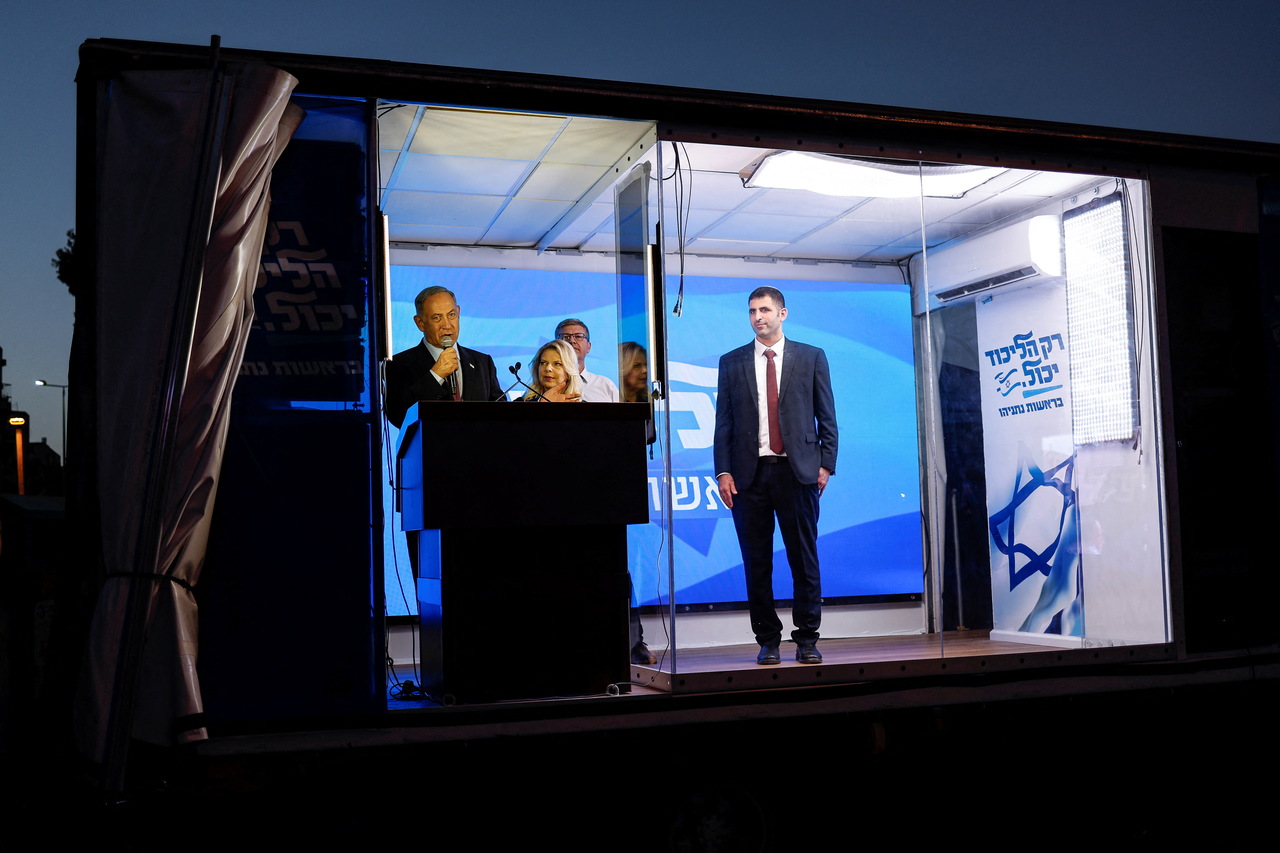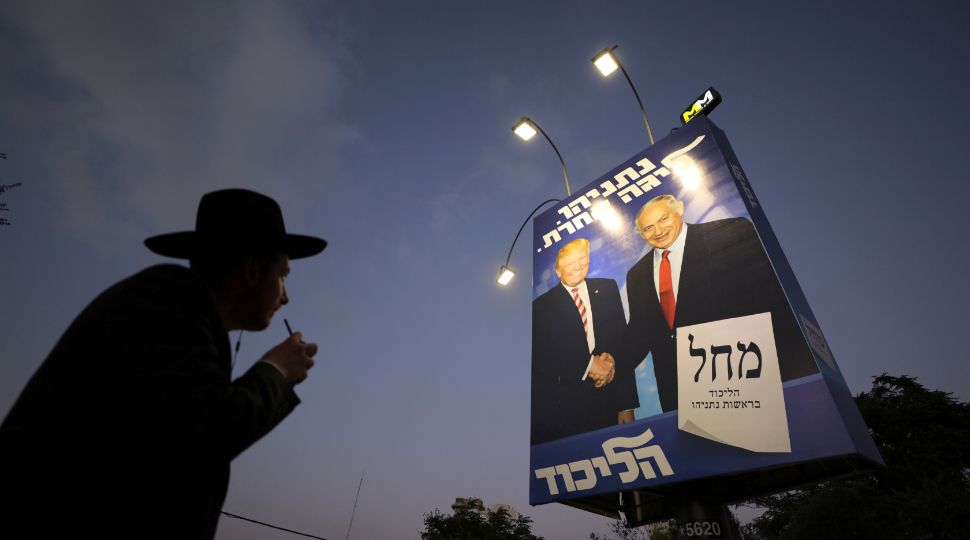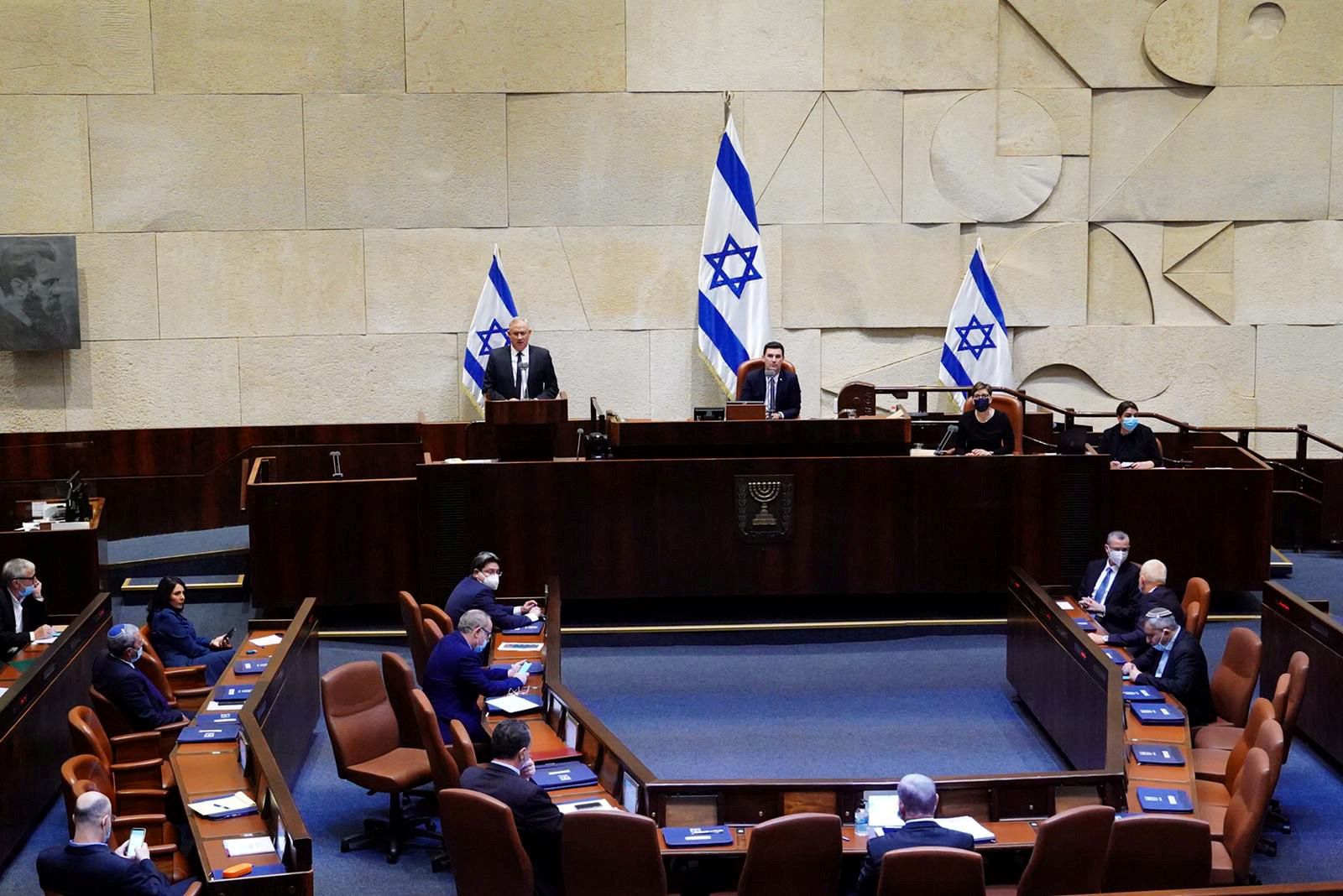Israel Prepares for the Next Knesset Elections
Pre-election polls indicate that neither the ruling parties supporting the current Prime Minister Yair Lapid, nor the parties supporting former PM Benjamin Netanyahu may gain a clear advantage in parliament. However, Netanyahu has a better chance of returning to power due to the coherence of his political bloc. The election campaign, more than in previous years, is focused on economic and foreign issues.
 AMIR COHEN/Reuters/Forum
AMIR COHEN/Reuters/Forum
The parliamentary elections scheduled for 1 November—the fifth since April 2019—are the result of the dissolution of the Knesset in June at the request of the government coalition. The government led by Naftali Bennett lost its parliamentary majority in April. Unable to reach an agreement with the opposition and fearing that Netanyahu could win over some of the coalition MPs and form a new cabinet, the leaders of the “government of change” triggered early elections. In accordance with the coalition agreement, after the Knesset was dissolved, Yair Lapid became PM, while remaining the head of the Ministry of Foreign Affairs portfolio.
Pre-Election Constellation
The result of the ongoing election crisis is deepening the division of the Israeli political scene into two blocs—one supporting the return to power of Netanyahu and the second opposing it. However the polls do not show a clear advantage guaranteeing 61 seats in the 120-seat Knesset for any of the blocs. Likud, led by Netanyahu, remains the largest party (about 31 seats expected), the second is Yair Lapid’s centrist Yesh Atid (25). Netanyahu’s bloc includes the Religious Zionist Party (about 13 seats), which represents the radical and nationalistic electorate, and the religious parties Shas (8) and United Torah Judaism (7). The parties of the current government camp are the National Unity Party (NUP, 11 seats, formed as a merger of the Blue and White and New Hope), the right-wing Yisrael Beitenu (6), the left-wing Labor and Meretz (5 each), and the Arab and conservative Ra'am (4). The right-wing Jewish Home led by Ayelet Shaked, who remains in the government but has not ruled out a coalition with Netanyahu, is slightly below the electoral threshold (3.25%). The Arab alliance The Joint List, which positions itself outside the blocs, broke up, but polls indicate that part of it, the Hadash-Taal electoral list, will win four seats.
Both blocs in the current political environment are competing for the smallest possible parliamentary majority. Netanyahu’s bloc is more cohesive, but because it antagonised potential coalition partners in the past, they excluded Likud as a coalition partner as long as it led by Netanyahu. His chances of building a coalition would increase if The Jewish Home enters the Knesset or smaller parties fail to do so (e.g., left-wing), which would mean a more favourable distribution of seats for Likud. On the other side, Lapid’s prospects for building a majority are hampered by the stance of Hadash-Taal, which traditionally contests participation in the government. Without its support, Lapid’s camp does not exceed 60 seats. Although Yesh Atid itself has clearly greater support than in the previous elections (up from 15 seats), this strengthening is not accompanied by the consolidation of its post-election allies. The attempt by left-wing parties to create a joint electoral failed, which might reduce their chances of passing the electoral threshold. Lapid’s ability to form a government after the elections is openly contested by Benjamin Gantz from NUP (who was an alternative prime minister in the short-lived Blue-White–Likud government), who is positioning himself as a potential candidate for a coalition of centre-right and religious parties. Also unfavourable for Yesh Atid is the expected low attendance of the Arab electorate, discouraged by the divisions in its current representation and disappointed with the government’s policy. It might worsen the results of possible coalition partners for Lapid, such as Ra'am.
Campaign Content
On domestic policies, the parties are focused more than in previous years on economic issues, primarily rising prices (inflation in Israel reached 4.5%, the highest since 2008) and the cost of living. The government also strongly emphasised the risk of radical changes after the extreme-right came to power, especially the rights of minorities and issues related to the judiciary. These arguments were reinforced by the election declarations made by the Religious Zionism Party leaders, who postulate limiting the prerogatives of the Supreme Court (which also serves as the Israeli constitutional court) and legal solutions supporting Netanyahu, who is involved in corruption trials. The issue of state security has traditionally played an important role. The pre-election period has been a time of destabilisation in the West Bank, where there has been an increase in attacks, including by new Palestinian militant groups. As a result of the actions of the Israeli services, in particular in Nablus and Jenin, since the beginning of 2022, about 100 Palestinians have died (highest rate since 2015, according to UN data).
On international issues, both sides discount the success of the normalisation process with Arab states, but Lapid is striving for closer cooperation and greater institutionalisation and Netanyahu is promising to establish official relations with Saudi Arabia. The election campaign was marked by the signing of an agreement on the delimitation of the sea border with Lebanon, which included the division of disputed gas deposits. Despite reaching an agreement (with the help of the U.S.) with the hostile neighbour, the opposition accused Lapid of excessive concessions and strengthening Hezbollah. The Lapid government also tried to emphasise the need for close relations with the EU, the Biden administration, as well as improving relations with Turkey.
The war in Ukraine has not been a significant election topic, but new threats to Ukraine, including Russian missile attacks on civilian targets and the use of Iranian weapons, especially drones, has increased the attention paid to it. Despite diplomatic actions (e.g., quick condemnation of the annexation of Ukrainian oblasts), the Lapid government has tried to maintain its cautious policy and decided not to declare it would supply weapons (including anti-missile systems) to Ukraine. The opposition remains even more restrained. Netanyahu, the main architect of the Israeli policy of neutrality in the Ukrainian-Russian conflict, has not condemned Russia directly since the beginning of the invasion, although he announced that he would “consider” handing over arms to Ukraine after winning the elections. The attitude of politicians is clearly influenced by public opinion. According to polls, only 21% of Israelis support the supply of arms to Ukraine, 41% are against, and 38% are undecided.
Perspectives
In the 1 November, Netanyahu has the best chance of winning a minimal parliamentary majority, but there is a high probability of a repeat of the electoral stalemate. If party leaders maintain their current positions on supporting a particular bloc—represented by either Lapid or Netanyahu—it will lead to prolonging the crisis and new elections again. Such a scenario would favour the current prime minister, who would remain at the head of the transitional government. For Netanyahu then, it could be problematic to maintain his position as the leader of his political camp, although his standing in Likud remains stable. Other scenarios, such as Gantz’s attempt to create a coalition, would require a change in the existing political alliances.
If the right-wing, religious camp wins, it will strive to implement the previously announced reforms limiting the scope of the judiciary, especially regarding the powers of the Supreme Court, and it will increase the support from the government for the settlements movement. Despite the pre-election declarations, Netanyahu’s victory may lead to a reduction in Israeli involvement for Ukraine (or make it more transactional). Lapid retaining its position, even as the head of a transition cabinet, offers greater chances for Israel to cooperate more closely with the EU and the U.S., also in the context of the Ukrainian-Russian war. However, the lack of material support for Ukraine, especially with the continuation of Iranian support for Russia, will generate increased political and diplomatic pressure on the Israeli leadership.
The most serious challenge for the new government will be the deteriorating situation in relations with the Palestinians, with the effect possibly the deployment of larger forces to the West Bank (risking further escalation) or trying to improve cooperation with the Palestinian Authority. The issues most strongly resonating in the campaign—the rising costs of living, economic problems, the future of relations with Arab states—indicate the top priorities for the future government regardless of the final composition of the coalition. However, continued political polarisation will limit cooperation between the competing blocs.





